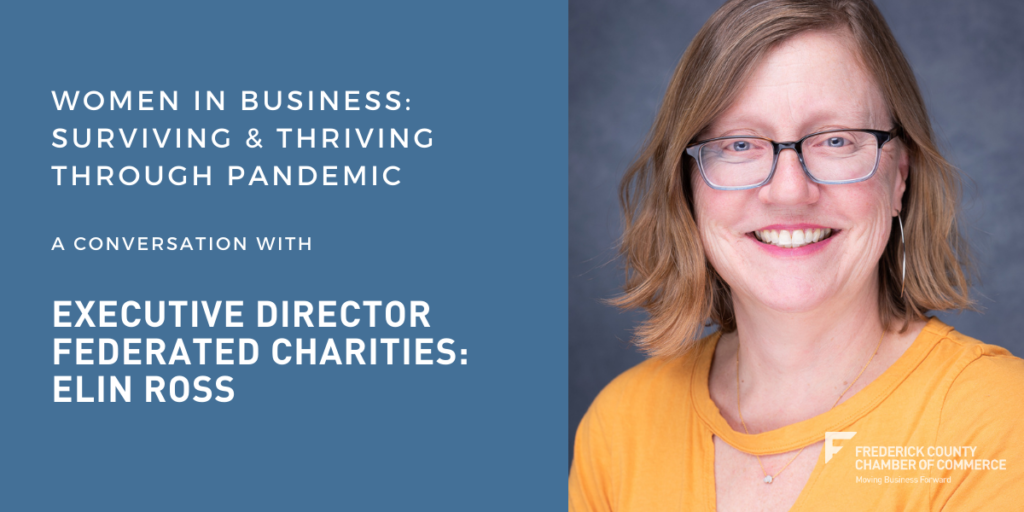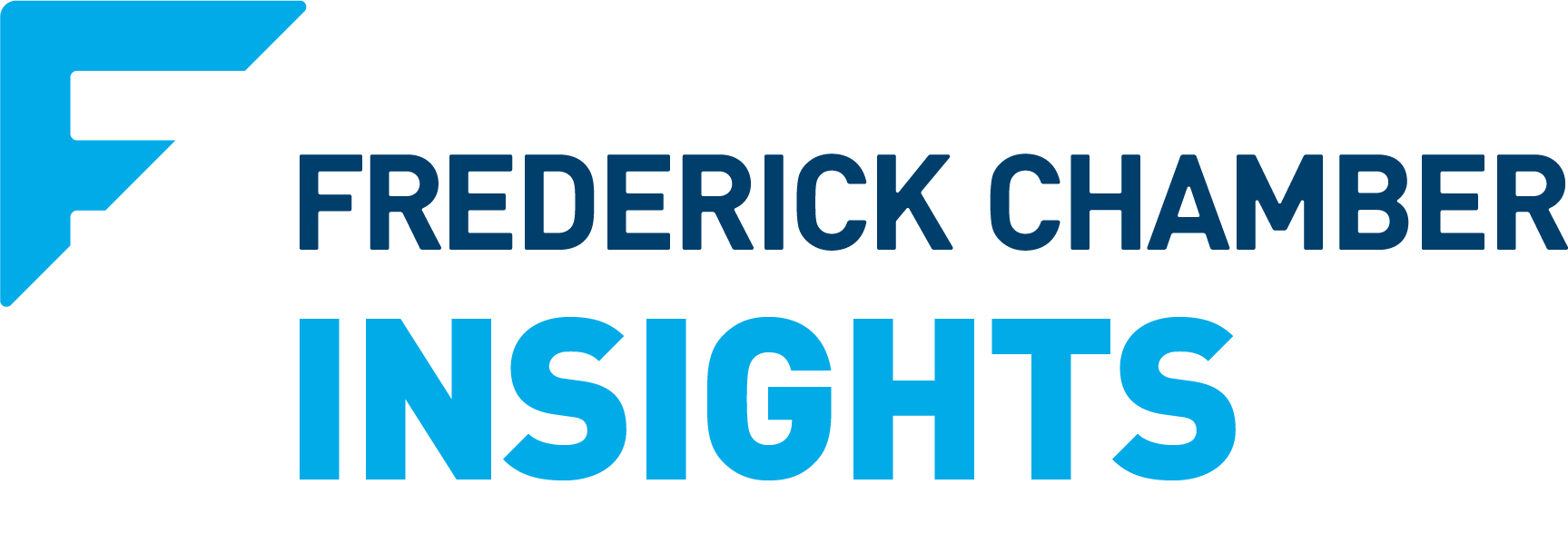Elin Ross, Executive Director of Federated Charities, a local nonprofit that offers brick and mortar space to nonprofit organizations in downtown Frederick, has unique insights into the nonprofit community in Frederick.
They not only interact with the organizations they provide space to, but they provide a number of other support services in their role as a nonprofit center, “Federated Charities is also very interested and invested in supporting a sustainable safety net in the community. Nonprofits have access to their professional development series where they can learn skills about running their own nonprofit, fiscal sponsorship, we offer meeting space and it really is about creating a sustainable safety net for the entire community,” explained Elin.
In addition to the 10 nonprofits currently utilizing their space, they also serve a variety of organizations that aren’t in the building via board trainings and other support services they offer.
Additionally, Elin serves as Chair of the Frederick Nonprofit Alliance at the Chamber, meaning she works really hard to ensure the nonprofit organizations in Frederick have the tools, resources and advocacy they need to achieve their missions.
Throughout the last year, local nonprofits, similarly to the small businesses in the area have struggled to make ends meet and provide the services the community needs.
In our recent Facebook live interview, Elin shared some of the things she thinks have helped nonprofit organizations survive and thrive through the pandemic.

Surviving & Thriving During Pandemic: Nonprofit Organizations in a Global Pandemic
The impact of the pandemic on nonprofit organizations.
2020 was a challenging year for all of us.
Elin said it best: “We all look back at 2020 and where we are in 2021 and think it was a complete dumpster fire.”
On the bright side, however there have been glimmers of hope.
“It was a year where many of us saw our corporate support and our individual donors go down, but some have seen them go up! Frederick is a really giving community,” said Elin.
But more than anything, the successes many nonprofits have experienced have come from their ability to adapt to change.
“We’ve all had to figure out how to adapt to new ideas… We’ve all had to figure out how to continue to engage our supporters more effectively. We’ve also had to figure out how to serve a higher level of need and that can be extremely challenging especially when you think about resources and revenues going down,” explained Elin.
Challenges Nonprofits have faced are unique.
Because so many nonprofits provide direct services, they’ve met unique struggles with providing standard levels of care when they can’t operate face to face and engage people in person.
“The nonprofit industry is a uniquely peopled industry. We see people who need a place to go. They don’t necessarily have a computer where they can have an easy mental health consultation in this environment. It isn’t the best way for them to access food resources or figure out how to fill out an application for housing,” described Elin.
The technology divide has come into glaring focus when you consider that so many of those in need just don’t have standard levels of access – because of infrastructure, finances or ability – to the technology needed to maintain care and acquire services.
Finding ways to engage children, those who are experiencing homelessness, the elderly and those who live remotely in areas where Internet service is spotty or nonexistent, has provided unique challenges to community service organizations like many of our nonprofits.
Again, our nonprofits have rallied thanks to their uniquely adaptable way of doing business, “We have to do more with less every single day so we were, in some senses, very lucky,” shared Elin.
Virtual events have provided an opportunity and hope.
Fundraising has been impacted for most organizations, particularly those who rely on events to provide their revenue.
“Events are the lifeblood of so many organizations and coming up with a strategy to replace those in a virtual environment is so important when they’re a big part of your budget,” noted Elin.
We’ve all turned to the virtual environment in so many more ways and nonprofit are no different. But, finding the formula that works for them to encourage giving is so important, “These [events] have to be even more engaging. It’s easy to get dressed up and go drink a cocktail and you know exactly what’s going to happen. But, you don’t always know how that’s going to happen in an online event,” explained Elin.
Successful virtual events require that the host provide the entertainment to replace all of the “free” engagement provided by being in a room with a group of people all dressed up, eager to have fun and ready to give, “[Without this] the burden is really on the organization to be more of the active entertainer,” said Elin.
As challenging as they are, though, organizations that have figured out the formula are thriving, “We’re going to continue to see online events. I think we’ve learned in many cases that it’s far less expensive on the front end and in some cases can raise as much or more in a virtual setting,” shared Elin.
And, while she doesn’t anticipate that we’re going to switch to virtual events forever and always, she does predict that the gala of the past is possibly forever altered.
Federated Charities can help organizations build a safety net.
For local nonprofits who are struggling, Federated Charities is attempting to support them in new ways.
In addition to providing professional development options, guidance and support, they’ve also worked to alter their in-building services.
Because their space is so adaptable, Federated Charities can be a support to organizations with varied needs. Whether you’re downsizing or just getting started, they’re able to be creative with their space offerings to allow an organization to get afloat or stay afloat in this uncertain time, “We’ve tried to build in some additional technology resources, we’ve tried to build in some additional shared space resources, we’ve tried to create smaller work spaces so it’s not such a heavy lift as far as finances are concerned for people to have an office outside of their dining room. But we’re also still seeing tremendous growth in terms of emerging organizations… People are still trying to create mission based services that meet needs in the community. Needs that aren’t currently being met or are being met differently,” shared Elin.
They’re eager to work with all of these organizations in whatever way they can to ensure that the safety net exists in the way organizations need it to now and into the future.
To see the entire live interview, you can watch it here: Elin Ross on the Pandemic’s Impact on Nonprofits in Frederick
Frederick Chamber Insights is a news outlet of the Frederick County Chamber of Commerce. For more information about membership, programs and initiatives, please visit our website.

